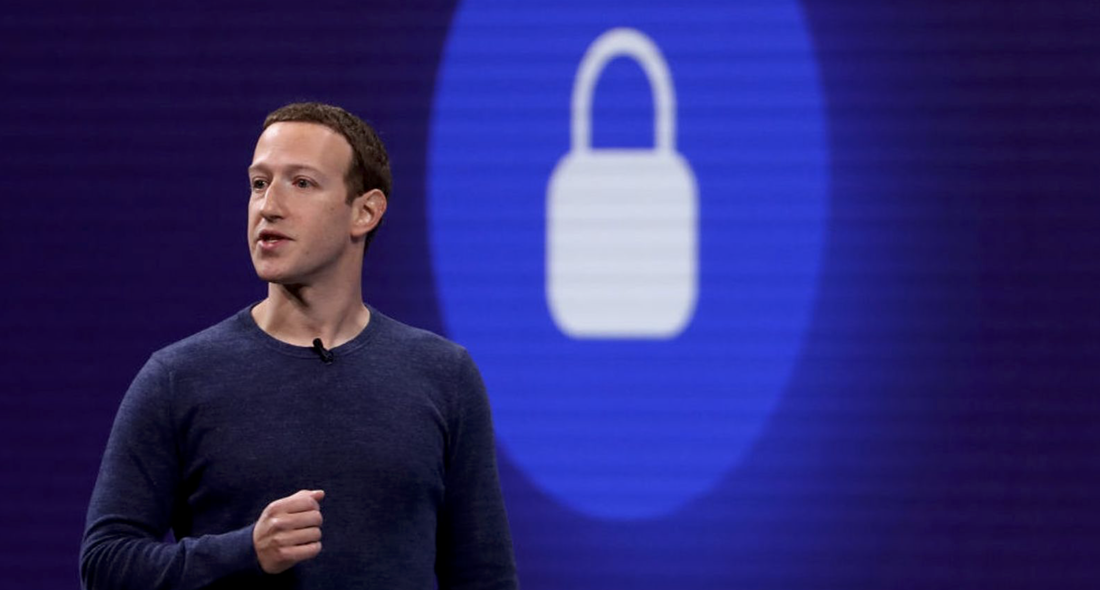|
Mark Zuckerberg's sudden Wednesday declaration of the new "privacy vision" for social networking was for most people a sort of psychological test. Looked at one way that the manifesto study as an apology of forms for Facebook's history of privacy transgressions, and suggested that the social network would de-emphasize its substantial community social media in favor of private messaging between individuals and among small classes.
Appeared at another, it turned out face-book into a kind of privateness champion by embracing encoded messaging that's shielded from prying eyes including those of Facebook itself. Yet another reading indicated the entire thing was a public-relations exercise designed to lull its users although Facebook entrenches its aggressive position in messaging and uses it to create new sources of user data to nourish its own voracious advertising machine. As with many things face book, the truth is somewhere in between. Face book so much isn't elaborating far on Zuckerberg's manifesto. Here's a guide to what we all understand at the moment about its own aims. In one sense, nothing. Its existing social network, with its own newsfeeds and pages and 2.3 billion global users and $22 billion in 2018 profits, won't change and will likely continue to grow. Although user expansion was residing in North America, face-book's worldwide user base enlarged a 9 percent in the last quarter of 2018. But Zuckerberg suggested that face-book's future development will rely on private messaging such as what it offers with its own WhatsApp, Messenger and Instagram Direct services. Even the face book CEO claimed private messaging in among individuals and small classes is "definitely" the fastest-growing section of online communications. Naturally, Facebook would like to be there in a major way. Its very first measure will be to make its three messaging services communicate much better with every other. That can let you message a friend of WhatsApp from face-book Messenger, which isn't currently potential. It would likewise link your messaging accounts to your Facebook i-d, therefore individuals can find you more easily. Zuckerberg also promised to greatly increase the security of the messages. It will implement the so-called end-to-end encryption for messaging, which could scramble them in order that no one but the sender and sender may read. That would bar accessibility by governments and Facebook. WhatsApp is encrypted this way, but Messenger and Instagram is not. The first switch users might notice is the address publication, explained Siva Vaidhyanathan, director of the Center for Media and Citizenship at the University of Virginia. Even though your Facebook, Instagram and WhatsApp contacts may be somewhat different today, in the event the services combine into some level, your contact lists will also, too. "As such services merge, we could wind up basically having these huge combined address novels from other messaging services," he explained. You're not likely to see at least one of those improvements anytime soon. In his blog post, Zuckerberg stated the master plan will soon likely be rolled out"on the next few years. A lot of this function is in the early stages." Plus it's subject to change. EMarketer analyst Debra Aho Williamson points out that preceding Facebook visions of the future haven't really panned out. A couple of years back, for instance, Zuckerberg predicted that video and augmented and virtual reality would have been a much larger section of Facebook than what materialized, for illustration. But it shows that face-book is trying to accommodate as people shift toward services such as Instagram and WhatsApp more than Facebook which now has 1-5 million fewer U.S. users than in since 20 17, according to Edison Research. In his post, Zuckerberg said he anticipates Messenger and WhatsApp will eventually become the main ways people communicate on Facebook's community. "There is not a sense that things will fundamentally change overnight, and probably this year," Williamson explained, "But it indicates face book is thinking a lot much more significantly about embracing how that people communicate today." Encrypted messaging is in lots of ways a big plus for solitude. But the manner Facebook gathers information about you on its main service site isn't changing, said Jen King, director of consumer privacy at Stanford Law School's Center for Internet and Society. "This is limited by a very specific area of the platform plus it will not really handle all of the manners face book is however collecting data about you," she said. So users still ought to be alert about privacy settings and careful about what they decide to share on face book. Facebook is likely to get data about your messaging so-called metadata that, according to security experts, will let it know who you communicate with, when and how often you publish, where you might be when you perform it for how long. That can explain to Facebook much about you if it can not see the contents of your messages. Although the timeline is hazy, Zuckerberg did outline other changes users will eventually see. He said the company is looking at techniques to make messages less permanent, '' a manhunter Snapchat or even Instagram"testimonies," which disappear soon after 24 hours. "Messages could be deleted after a month or a year by default option," Zuckerberg wrote. "This could reduce the risk of your messages resurfacing and embarrassing you later." Zuckerberg stated, users will have the capacity to change the time frame or switch off auto-deletion. "And we can also provide an option for you to set individual messages to expire after some seconds or minutes in case you wanted." Facebook will also enlarge the way users can use its platform to cover for things, said Justin Brookman, director of consumer privacy and technology plan for Consumer studies. Zuckerberg failed to mention any new payment options specifically but didn't bring up payments four times in his post. At the moment Facebook lets its users pay friends or businesses digitally by linking a charge card or PayPal account and that's the method that is not very likely to improve anytime soon. But as face book seems to be to emulate Chinese behemoth WeChat, it may let you reserve a table throughout Facebook instead of going right through an outside app or buy an Uber. "Ideally face book will attempt to get yourself a cut of all transactions," Brookman explained. Electronic digital money of Facebook's very own is also rumored to be in the functions. "Like many other companies face book is exploring strategies to leverage the power of blockchain engineering," Facebook said in a statement. "This new small team is exploring lots of unique applications. We don't have anything further to talk."
0 Comments
Leave a Reply. |
CategorY
All
Archive
May 2021
|


 RSS Feed
RSS Feed








